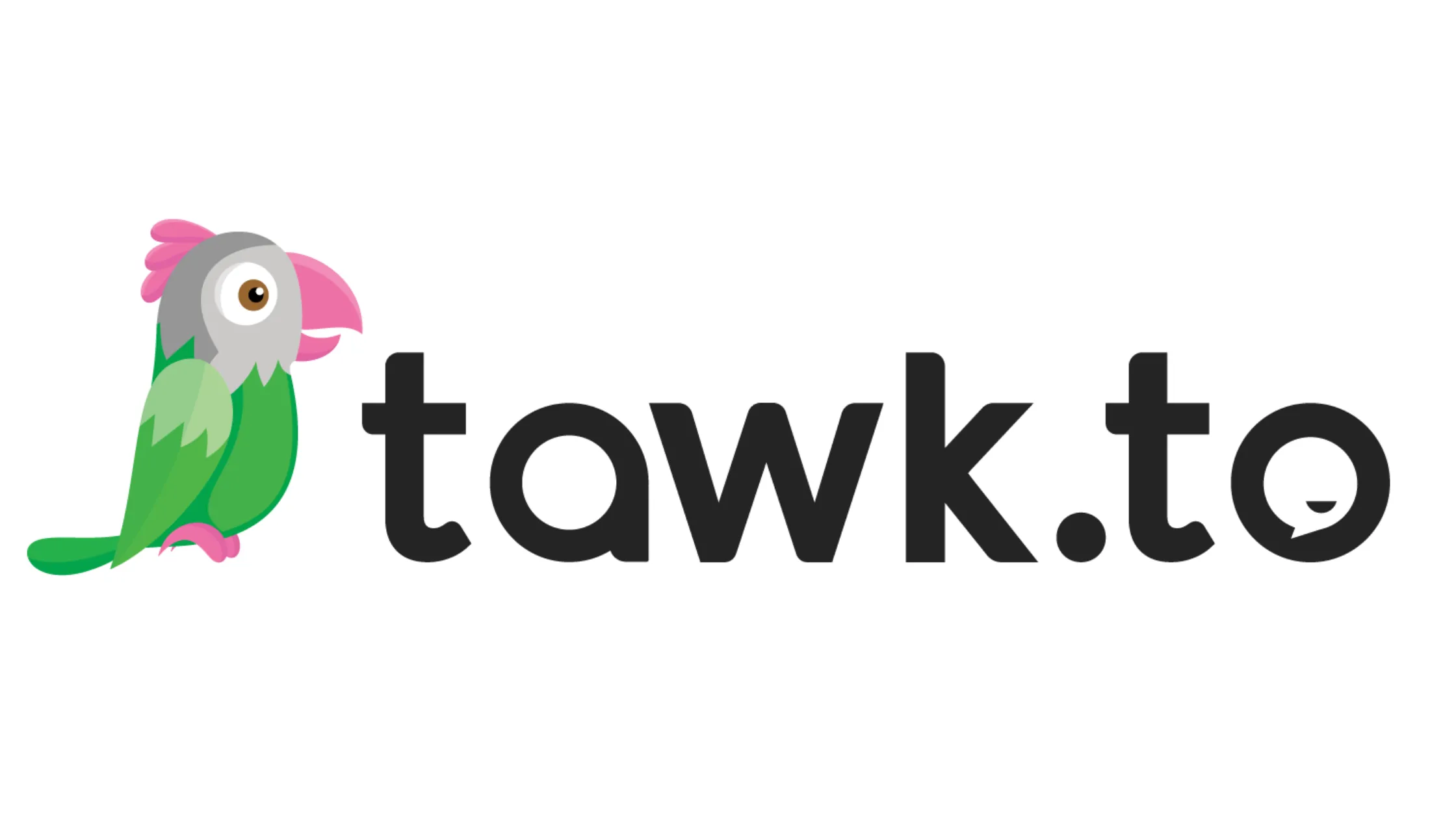
What is Business-to-Business (B2B)?
Learn how business-to-business (B2B) models can accelerate your startup’s growth and why they might be the key to unlocking long-term success.
When starting a business, it's easy to focus on selling directly to consumers. But there’s another powerful approach that can fast-track your startup’s success: Business to Business (B2B). In B2B, instead of targeting individual consumers, you work directly with other businesses. This can unlock larger contracts, recurring revenue, and stronger partnerships. But what exactly does B2B entail, and how can it help your startup grow? Let’s dive into the key elements of B2B and why it might be the right fit for your startup.
What is Business to Business (B2B)?
The Basics of B2B
In simple terms, B2B refers to transactions between businesses, rather than businesses and individual consumers (B2C). You’re offering products or services that help other businesses succeed, whether through software, hardware, consulting, or even raw materials. Common examples of B2B companies include Salesforce, which provides customer relationship management (CRM) tools to other businesses, or AWS, which offers cloud services to organizations of all sizes.
In B2B, your clients are typically other businesses, which often results in larger contracts and more stable, predictable revenue streams. But it also requires a deeper understanding of your client’s needs and longer sales cycles than B2C models.
Why Should Startups Consider a B2B Model?
Larger Deals, Bigger Impact
One of the biggest advantages of B2B is the size of the deals. When you're selling to businesses, you're often dealing with bigger budgets. Rather than focusing on individual consumer sales, which might generate smaller transactions, B2B sales can bring in contracts worth thousands or even millions of dollars. This allows your startup to scale more quickly by focusing on fewer, higher-value customers.
Recurring Revenue
Another great thing about B2B is the potential for recurring revenue. Businesses often need ongoing services and solutions. For instance, if you’re a SaaS company offering a subscription product, your customers will likely continue paying you monthly or annually to maintain access. This kind of recurring revenue is gold for startups because it provides stability and predictability in your income.
Long-Term Relationships
In B2B, relationships matter. Unlike B2C, where customers might come and go, businesses prefer long-term partnerships. Once you've proven your value to a company, they are likely to stick around. This loyalty can result in repeat contracts, upsells, and word-of-mouth referrals. Building trust in these relationships is key to success in the B2B world.
Challenges of B2B for Startups
Longer Sales Cycles
One challenge with B2B is the longer sales cycle. Businesses often take time to make decisions. There are layers of approval, budgets to be signed off, and procurement processes to go through. This means you might have to wait months (or even years) before closing a deal. Startups need to prepare for this reality and ensure they have the runway to sustain themselves while waiting for deals to close.
Higher Expectations from Clients
Businesses expect a lot from their vendors. In B2B, you’re not just providing a product; you’re providing a solution that should integrate seamlessly into your client’s existing workflows. They will have specific requirements, customizations, and ongoing support needs. If you can’t meet these expectations, it can be hard to maintain the relationship.
That’s why it's crucial to deliver on your promises and go above and beyond for your clients. Offering excellent customer service, strong technical support, and clear communication is non-negotiable in B2B.
How to Succeed in B2B as a Startup
Understand Your Client’s Pain Points
To thrive in the B2B space, you need to understand your clients’ pain points deeply. What are the specific challenges their business is facing? How can your product or service solve those challenges? Whether it’s reducing costs, increasing efficiency, or driving more revenue, you need to frame your value proposition around their needs.
Conduct thorough market research, engage with potential customers early, and gather feedback to refine your offering. The more you know about your target audience’s pain points, the better you can tailor your solution to their needs.
Build Strong Relationships
In B2B, relationships are everything. Networking and relationship-building should be a core part of your strategy. Get to know decision-makers at your target companies. Attend industry events, join relevant communities, and follow up with potential clients regularly. Over time, these relationships will pay off as you build trust and rapport with key players.
One way to nurture relationships is through content. Publishing thought leadership, case studies, or whitepapers that demonstrate your expertise can position your startup as a trusted partner in the industry. When businesses see that you understand their industry, they’re more likely to choose you as their vendor.
Why Horizon Labs Excels in B2B Product Development
At Horizon Labs, we understand the unique challenges startups face when entering the B2B space. As founders who’ve been through the grind ourselves, we know how crucial it is to build products that not only meet your client’s needs but also scale with your business. We’ve worked with early-stage startups across industries like AI, healthtech, and e-commerce, helping them craft custom B2B solutions that drive real business results.
Our team doesn’t just code — we’re your strategic tech partner. We’ll work closely with you to ensure that your product is not only technically sound but also aligned with your customer’s needs. Whether you're building an MVP, scaling your platform, or augmenting your engineering team, Horizon Labs is here to help you succeed in B2B.
If you're ready to explore how a B2B strategy can transform your startup, contact us at info@horizon-labs.co or schedule a call at horizon-labs.co/contact. Let’s build something amazing together.
Frequently Asked Questions (FAQs) about Business to Business (B2B):
Q: What are some examples of B2B services that startups can offer?
A: Startups in the B2B space can offer a variety of services, such as software as a service (SaaS) solutions for CRM, accounting, or project management; cloud computing services like storage or processing power; consulting services to help other businesses optimize operations; or even physical products like machinery, office supplies, or raw materials. The key is solving a specific pain point for other businesses.
Q: How does B2B differ from B2C in terms of marketing strategies?
A: B2B marketing focuses more on long-term relationships and educating the target audience. Unlike B2C, where emotion-driven decisions and quick purchasing can occur, B2B buyers require in-depth product knowledge and proof of return on investment (ROI). Effective B2B marketing often includes strategies like content marketing, email campaigns, webinars, and direct outreach to decision-makers.
Q: Is B2B only for large enterprises?
A: No, B2B is not just for large enterprises. Small and medium-sized businesses often participate in B2B markets, either as buyers or sellers. Startups can benefit from B2B models by targeting other startups, small businesses, or specific niches where they can provide specialized services or products. In fact, targeting smaller businesses often allows for faster deal closure and more flexible contracts.
Q: How important is customer service in B2B?
A: Customer service is critical in B2B. Because businesses often rely heavily on the services or products provided, any disruption can impact their operations. Providing exceptional customer support, fast response times, and ongoing technical assistance is essential for building and maintaining long-term partnerships. B2B clients often expect more personalized and proactive service compared to B2C customers.
Q: What should startups consider when pricing their B2B offerings?
A: Startups should consider several factors when pricing B2B offerings, including the value they provide to their clients, industry benchmarks, and the complexity of their solutions. Many B2B companies use value-based pricing, where the price reflects the business impact the solution brings to the client. Additionally, offering tiered pricing or custom solutions based on client size or needs can be effective in attracting a wider range of businesses.
Q: How does the decision-making process in B2B work?
A: The B2B decision-making process typically involves multiple stakeholders, such as department heads, procurement teams, and C-suite executives. It often requires a thorough evaluation of the product or service, including cost, integration potential, and ROI. This leads to longer sales cycles, but once a business commits to a solution, the partnership can last for years. Startups need to prepare for these complex decision-making processes with clear presentations, demonstrations, and case studies.
Q: Can startups effectively compete in the B2B space with larger, established companies?
A: Yes, startups can absolutely compete in the B2B space, especially if they focus on innovation, agility, and solving niche problems. Larger companies often have slower processes and may not be as responsive to the specific needs of smaller clients. Startups, on the other hand, can offer more tailored solutions, faster implementations, and personalized customer service, which can be a significant competitive advantage.
Q: How does B2B e-commerce differ from traditional B2B transactions?
A: B2B e-commerce refers to the buying and selling of products or services between businesses through online platforms, making transactions more streamlined and efficient. Unlike traditional B2B, where transactions often involve negotiations, contracts, and multiple rounds of communication, B2B e-commerce allows businesses to place orders, make payments, and manage logistics through digital platforms. This can reduce administrative costs and increase the speed of transactions.
Q: What role does trust play in B2B relationships?
A: Trust is fundamental in B2B relationships. Businesses rely on their partners for mission-critical products or services, so reliability and consistency are essential. Establishing trust often requires delivering high-quality products on time, providing excellent customer support, and maintaining transparency throughout the relationship. Long-term contracts and repeat business are often built on the foundation of trust.
Q: How can startups generate leads in the B2B space?
A: Startups can generate leads in the B2B space through a variety of channels, such as content marketing, networking at industry events, attending or hosting webinars, and leveraging professional networks like LinkedIn. Offering valuable resources like whitepapers, case studies, or industry reports can also attract potential clients. Additionally, personal outreach via email or phone to decision-makers can be effective in starting conversations.
Q: What are common mistakes startups make when entering the B2B market?
A: Common mistakes include not fully understanding the customer’s needs, pricing their products too low or too high, and failing to properly manage long sales cycles. Another mistake is underestimating the importance of building strong relationships with clients. Startups may also face challenges when they overpromise and underdeliver, which can damage their reputation and prevent long-term contracts.
Q: How important is scalability in B2B product offerings?
A: Scalability is crucial in B2B. As your clients grow, their needs evolve, and they may require more advanced features or higher capacity. Startups offering B2B solutions should ensure that their products can scale with the client’s business without causing disruptions. Building scalable solutions also opens the door to upselling and cross-selling opportunities as your clients’ needs expand.
Q: What is account-based marketing (ABM) in B2B?
A: Account-based marketing (ABM) is a strategy where marketing efforts are focused on specific high-value accounts or clients, rather than broad campaigns. In ABM, the marketing team works closely with sales to tailor campaigns and outreach specifically for the needs and pain points of these target accounts. This personalized approach can lead to stronger relationships and higher conversion rates, as it focuses on quality over quantity.
Q: What should startups focus on during the early stages of their B2B journey?
A: During the early stages, startups should focus on clearly identifying their target market, building a product that solves a real problem, and gathering feedback from initial users. Establishing credibility is also important, which can be achieved by building a strong portfolio of case studies or testimonials. Early-stage startups should prioritize building a few strong relationships over chasing too many leads at once. Developing a solid sales and marketing strategy will also help in gaining traction.
Need Developers?
We help companies build ideas into apps their customers will love (without the engineering headaches).
















For Startups & Founders
We've been founders ourselves and know how valuable the right communities, tools, and network can be, especially when bootstrapped. Here are a few that we recommend.

Mistakes to Avoid When Building Your First Product
Learn the key mistakes founders make when building their first product—and how to avoid them for a faster, smoother launch.
Read more
The Rise of AI in Product Development: What Startups Need to Know
Learn how AI is transforming product development for startups. From MVPs to scaling, here’s what founders need to know in today’s AI-driven world.
Read more
No-Code vs. Custom Development: Which is Right for Your Startup?
Weighing no-code vs. custom development? Learn which is right for your startup depending on stage, budget, and product complexity.
Read more
What is Mixpanel?
Learn how Mixpanel helps startups track user behavior to improve products and accelerate growth with clear data-driven insights.
Read more
How Tawk.to Can Boost Your Startup’s Customer Support Game
Learn how Tawk.to can benefit startups by enhancing customer support and engagement. Perfect for early-stage founders!
Read more
Grow Your Startup With Anthropic's AI-Powered Tools
Discover how Anthropic's cutting-edge AI tools can accelerate your startup's success. Learn about their benefits and see why they can be trusted by startups.
Read more
What is Data-Driven VC?
Learn what a data-driven VC means and how such investors can benefit your startup’s growth and fundraising journey.
Read more
What is Blockchain?
A beginner-friendly guide on blockchain for startup founders, covering key concepts, benefits, challenges, and how to leverage it effectively.
Read more
What is Cybersecurity?
Learn cybersecurity basics tailored for startup founders. Understand key risks, best practices, and how to protect your startup from tech threats.
Read more
What is Seedcamp?
Learn what Seedcamp is, how its European seed fund and accelerator program work, and how founders can use its capital, mentorship, and network to scale their st
Read more
What is AngelList?
AngelList is a prime platform connecting startup founders to investors, talent, and resources to accelerate early-stage growth.
Read more
What is 500 Startups?
Learn what 500 Startups (now 500 Global) is, how its accelerator and seed fund work, and when founders should consider it—plus tips for early-stage startups.
Read more.png)